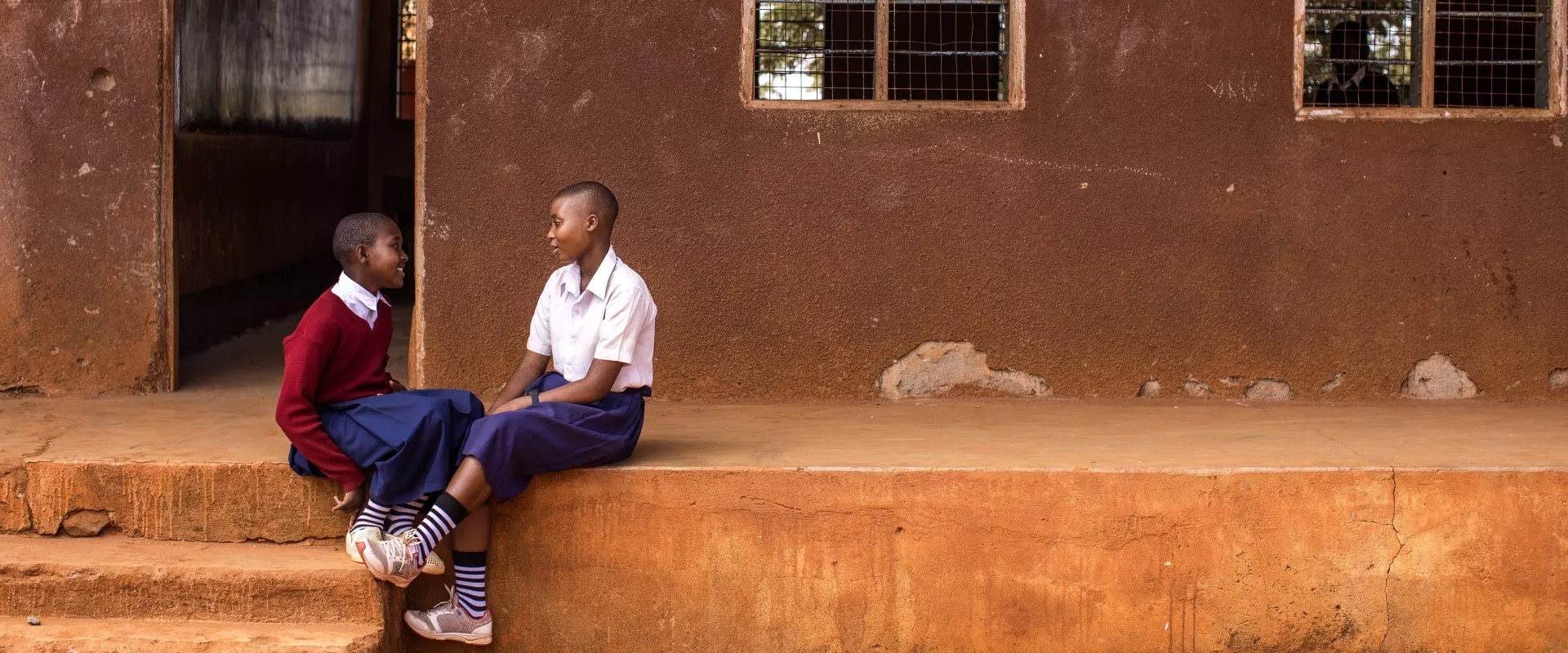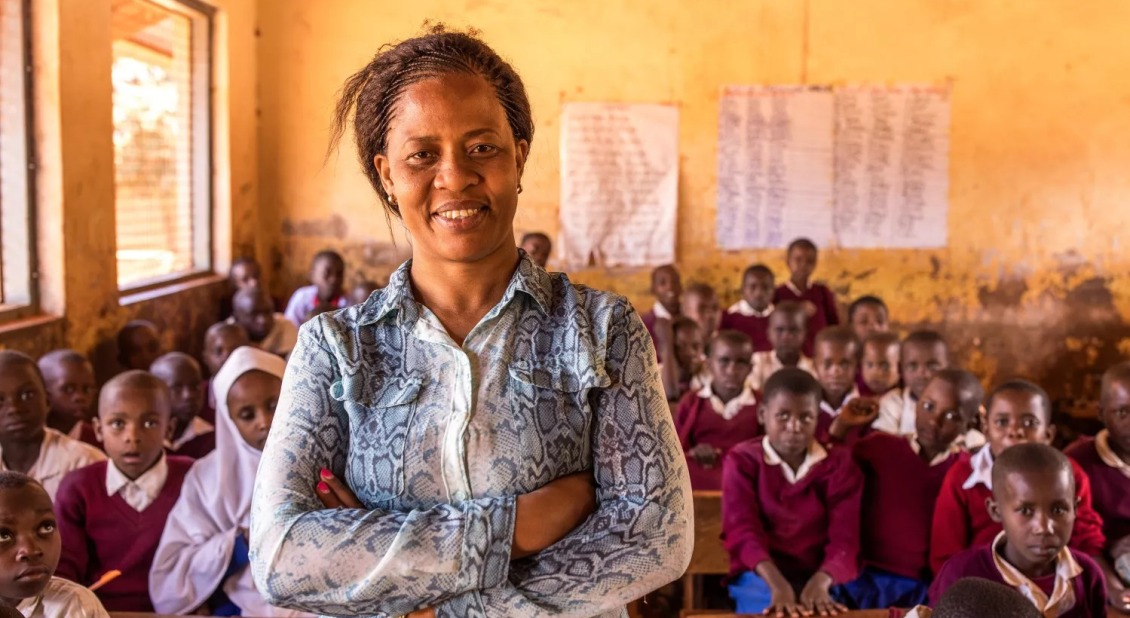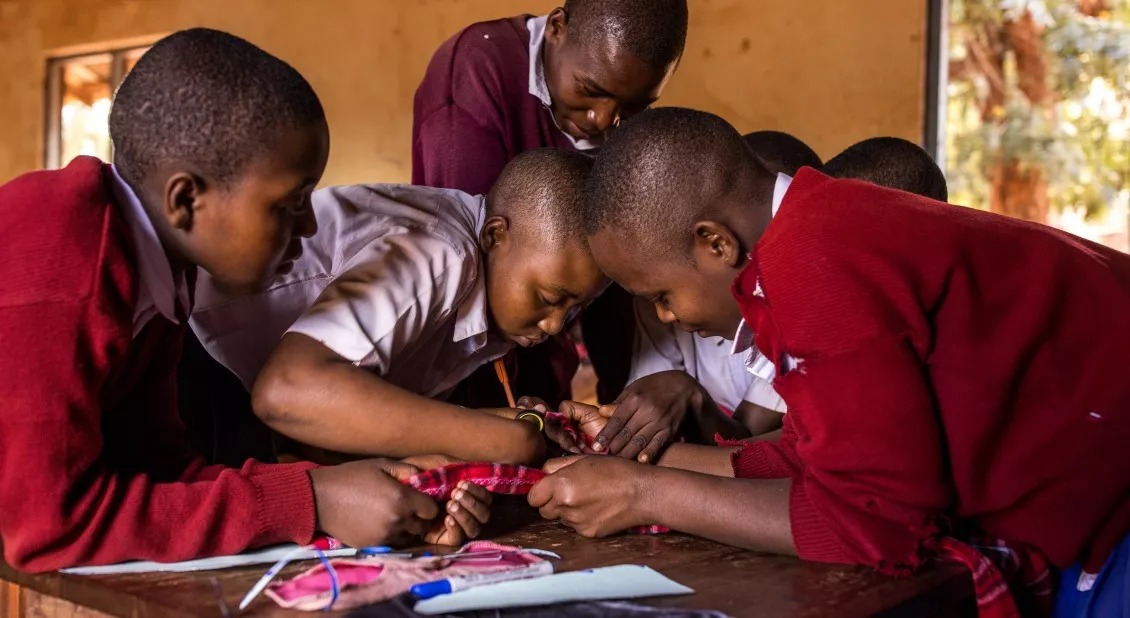
GIVE THIS RAMADAN

Until recently at the Lupeta Primary School in the Mpwapwa District in Tanzania, there were just seven toilet holes for 1,100 students. The toilets were frequently full of waste, smelled, and lacked cleaning supplies.
These poor sanitation and hygiene facilities caused health issues, like urinary tract infections, stomach problems, and diarrhea, and forced children to frequently miss school due to illness. Many students would wait in long lines or go home in the middle of the day to use the bathroom – losing even more valuable learning time in the classroom.
Lulu, a 16-year-old student at Lupeta, recalls that the school did not have enough water,
so some students never washed their hands after using the toilet.
“This made them sick and wasted class hours as they went for treatment. We did not have cleaning equipment; we suffered a lot. Water scarcity was the problem. Sometimes teachers would send us to carry water and brooms from home,” she says.
The disease forced us to stay out of school for treatment. As a result, we missed classes, which made us fail. – Lulu, 16
Now, thanks to Action Against Hunger, there are 20 modern toilets at the school – 12 for girls and 8 for boys. The organization also trained teachers and students – both girls and boys – on menstruation and menstrual hygiene practices.
“The toilets are no longer smelling bad, and we have cleaning equipment. We clean them and make sure no one leaves the toilets dirty,” says Suzana, 9, who used to go home when she needed to use the bathroom. Now, she and her friends use the school toilets.
“Action Against Hunger has rescued us. We use the new toilets without issue. No more cases of urinary tract infection, stomach problems, or diarrhea,” says Lulu. “We no longer suffer.”
The situation at Lupeta School is not unique. Across Tanzania, just 38% of schools have enough latrines for their students, 20% of schools have water supply facilities within school premises, and less than 10% of all schools in the country have functioning hand-washing facilities with enough clean water.
In addition to higher rates of illness, poor sanitation and hygiene adversely affects children’s participation and performance in school, lowers enrollment rates, and increases absenteeism and dropout rates. These issues are particularly prevalent among adolescent girls and children with disabilities.
Suzana loves studying the sciences and dreams of being a doctor when she grows up. Seeing the difference that the new toilets have made for herself and her studies, she urges other students at other schools across her country to advocate for higher quality bathrooms, too.

“With Action Against Hunger, we got quality toilets and a special changing room for girls when menstruating,” says Beatrice Meena, head teacher at the school. She has seen the school environment change for the better since Action Against Hunger intervened.
Many girls in the community and around the world skip school while they have their periods – meaning they could miss as much as a week per month of school. Improved access to feminine hygiene supplies and clean, safe toilet facilities can help prevent this, as can reducing common cultural stigmas and feelings of worry or shame around menstruation.
Action Against Hunger provided supplies and taught students and teachers to make reusable sanitary pads and disposal bags with available local materials. Many girls at the school, including Lulu, continue to use the pads, and more pads are available in the teacher’s office. The training helped to break the silence around menstruation – now, teachers, parents, and students are more comfortable discussing these issues openly.
“Boys are now part and parcel of menstruation talk. They can now help their sisters at home and even at school…it will be easier for the boys to support their wives and daughters in the future,” says Beatrice.

Join our community of supporters passionate about ending world hunger.